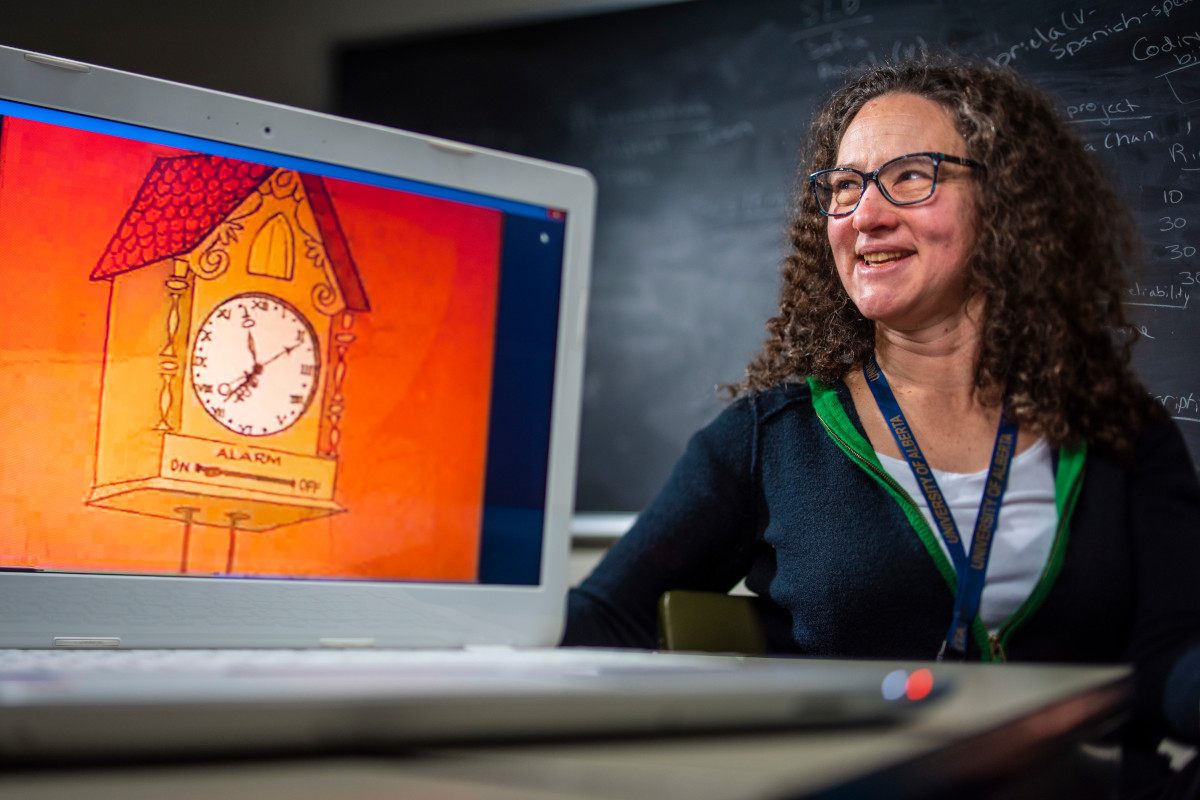
"Prepare to be adaptable—we're all in this together," says Elena Nicoladis, professor in the Department of Psychology. Learn about her plans for teaching in Fall 2020. Photo credit: John Ulan
When asked for her advice for learning in a remote environment, Elena Nicoladis explained that adaptability is key.
“Prepare to be adaptable! That’s what we are all doing,” said Nicoladis, professor in the Department of Psychology. “We are all in this together. And we are all trying to make it work. Be flexible. Be patient—with yourselves and with everyone else.”
Nicoladis will be teaching two courses this Fall 2020: Honors Seminar (PSYCO 300A & 300B) and Lifespan Developmental Psychology (PSYCO 223).
“In PSYCO 223, we look at how people change and move through life from just before they are born until they die,” explained Nicoladis. “The honors seminar is part of our undergraduate honors program, which offers students the opportunity to get first-hand experience conducting research.”
Both of Nicoladis’ courses will be delivered remotely and will include both asynchronous lectures and synchronous activities.
“In PSYCO 223, we’ll do weekly synchronous activities in which students must observe and then discuss certain behaviours,” explained Nicoladis. “For example, in one section, we’ll be looking at a collection of videos of children telling jokes—jokes that aren’t funny at all. Children can sometimes master the form of humour because they understand what it is that makes the joke funny, or the content of the joke, and we’ll discuss what it is that they understand and what they don’t quite have a handle on yet in terms of humour.”
The honors seminar course will include group research projects, giving students hands-on experience of all elements of conducting a study—including applying for ethics approval and, in some cases, even publishing a paper.
“Another thing seminar students will do is partner with first-year students in introductory psychology courses to provide mentorship,” added Nicoladis. “For the honors students, it provides an opportunity to learn about mentorship and about the process of learning. For the introductory students, it helps them understand more about the field of psychology.”
The global COVID-19 pandemic has required a mass migration to the digital world, and post-secondary learning is no exception. As the University of Alberta prepares to continue delivering course content primarily remotely in the Fall 2020, the Faculty of Science has connected with some of our top instructors and scientists to illustrate what the university experience will look like in the Fall 2020 term. While delivery may look different, what remains the same is our strong commitment to an engaging and quality education and experience for our students.
“I am looking forward to seeing students to the extent that I can on Zoom,” said Nicoladis. “The interactions that I’ve had over the spring and summer terms connecting with students over video chat have been fun. Watching students grow and learn is always a pleasure. That will happen this term—maybe not quite in the same way, but it will happen.”
Learn more about how the University of Alberta is preparing to engage students for September and beyond on our Fall 2020 hub.
Students, faculty, and staff can stay up-to-date with the latest information on COVID-19 for the campus community online.